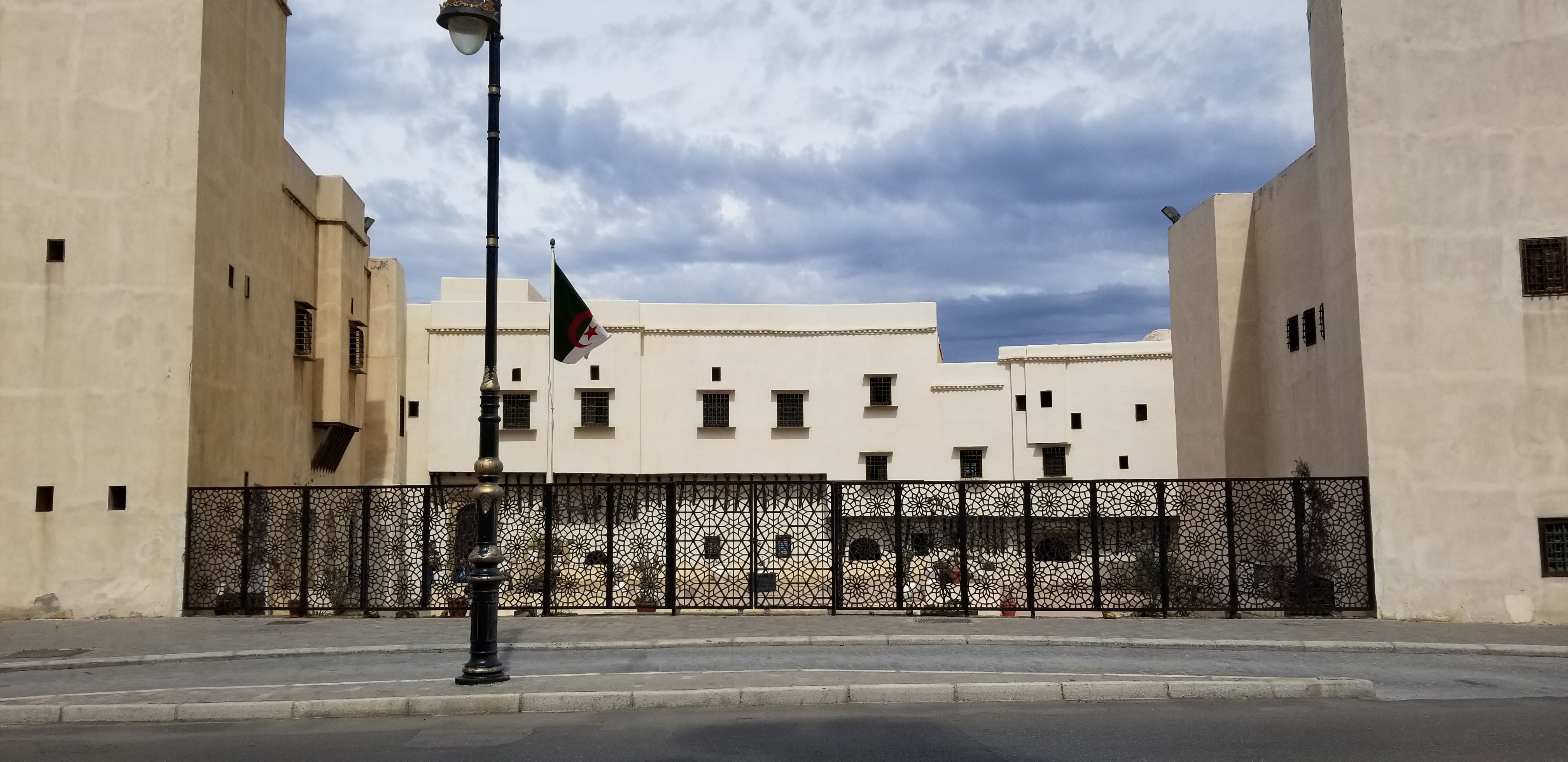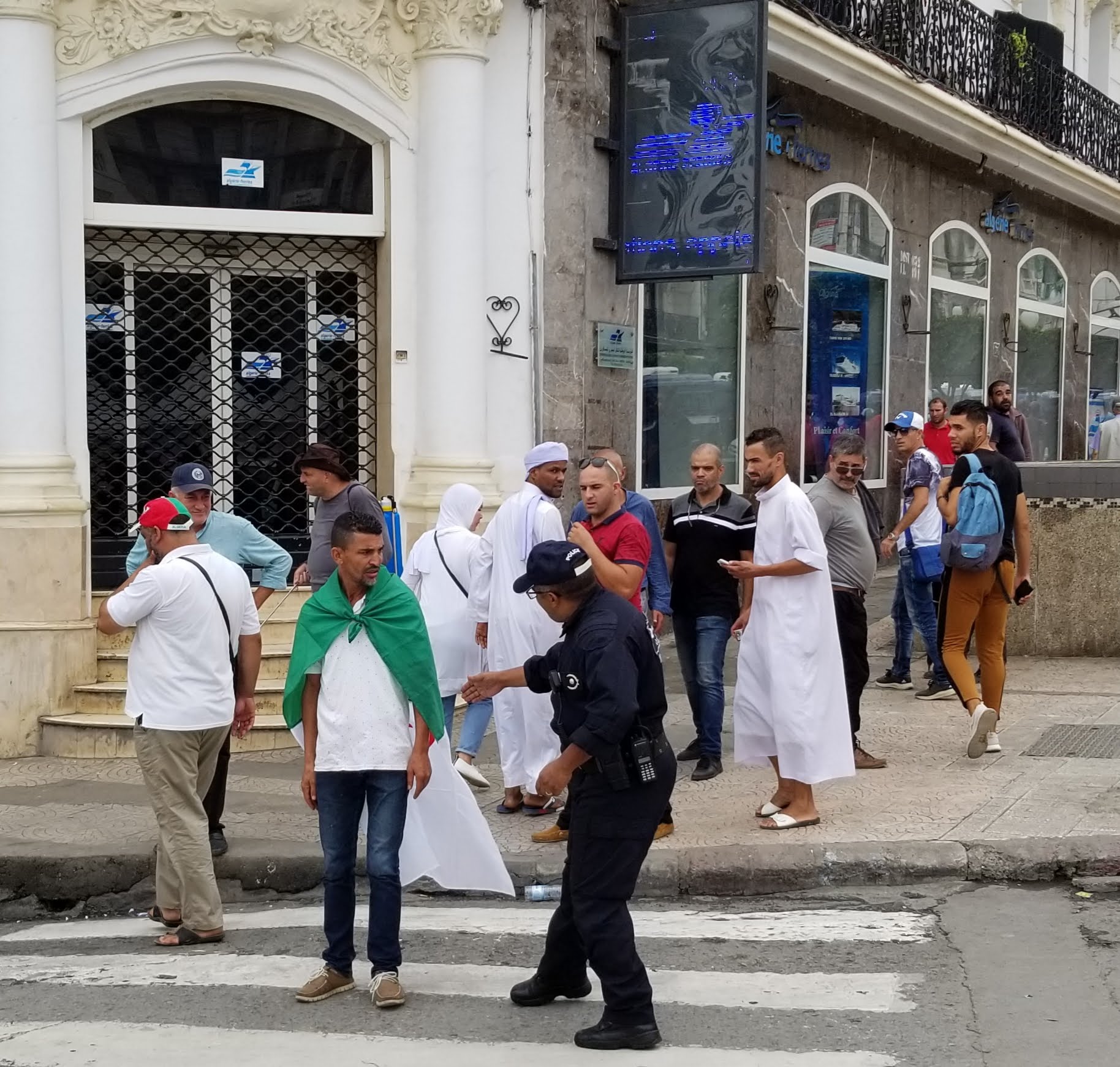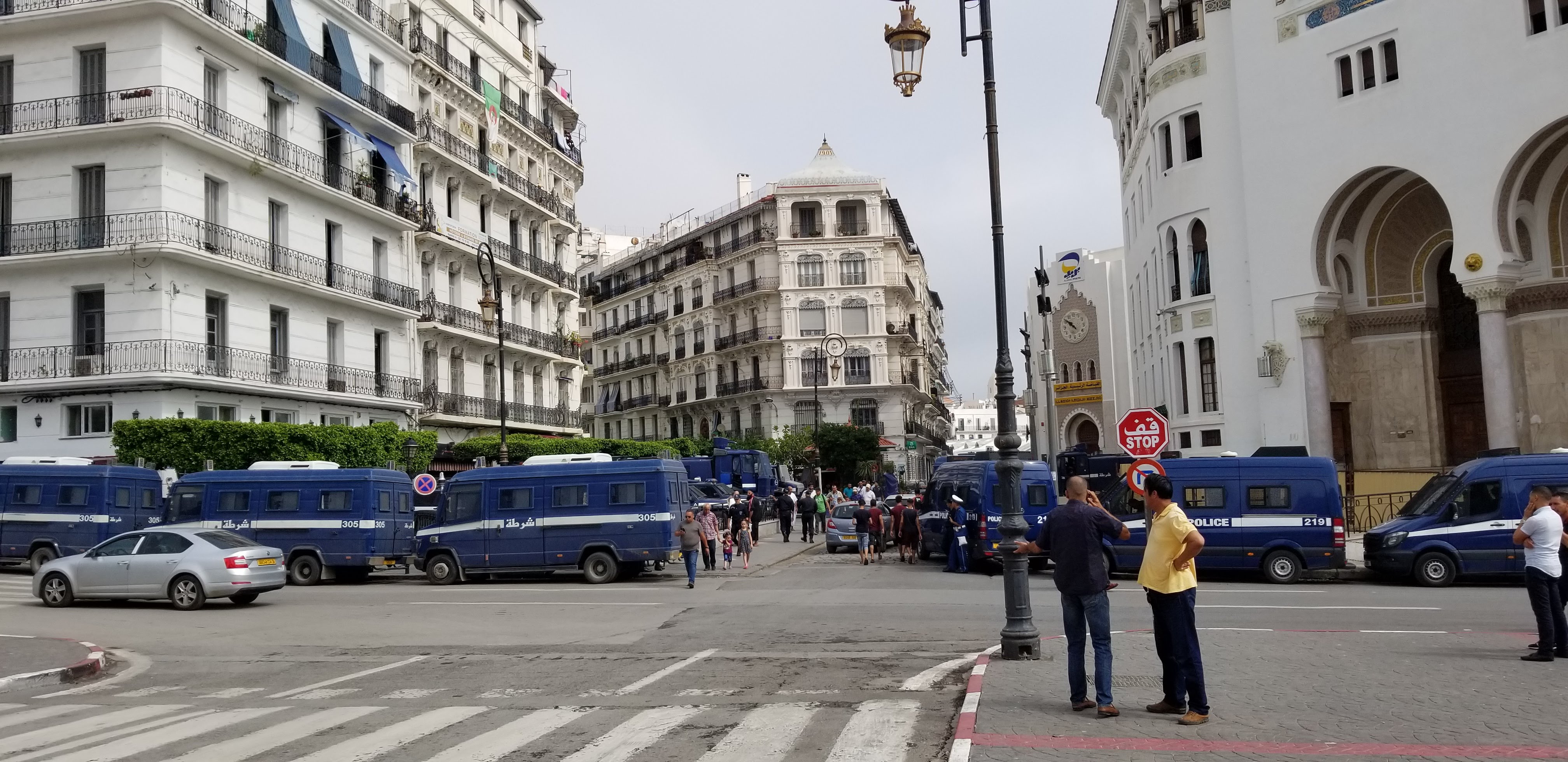Jean-Do Sifantus
Le putsch d'Alger
Le 22 Avril 1961 ma soeur Anne est très étonnée de trouver un grand gaillard en uniforme de parachutiste avec son béret vert en garde devant la porte de notre appartement à Alger. C'est d'autant plus étonnant parce que tous les appartements de l'ancien Palais des Rais sur la baie d'Alger, où étaient installées des familles le l'état major de l'armée, étaient généralement gardés par planctons de l'armée, pas par des parachutistes, réputés pour faire partie des troupes d'élite.

Figure 1: Le Palais des Rais (Bastion 23)
I started this post in French because I thought it would make more sense trying to express these memories in the language in which they were lived originally. However, the aim here is not precision but an attempt to express the side effects of events my family and I witnessed. Furthermore, it's very difficult to convey effectively what the situation was then to the people I know here, including those in my own family. There hasn't been a war within the US since the civil war. Therefore, any description of the situation in Algiers between 1958 and 1962 always appears to be an exaggeration on my part. There were no smart phone then, so there aren't many photos to back what I'm trying to convey. On top of being a great writing exercise, it may make more sense to attempt an explanation in English instead. I may also continue to do it as a bilingual narrative, sort of like War and Peace. Although I want to make clear that I don't intend to claim any of Tolstoy's talent whatsoever.
I was 10 years old when the putsch happened, just like Boualem Sansal the Algerian author who has written many books about the history of the Algerian colonization and decolonization.
I got busted right after taking the following picture just before the beginning of one of the Hirak demonstrations in Algiers when I went there in 2019 for the first time since 1962.

Figure 2: Hirak in Algiers
The Hirak demonstrations are a bit like the Arab Spring events in Egypt and other countries in the Middle East. Every Fridays (the Islamic Sunday) there are big demonstrations in town that start around 1:00 PM. So everyone gathers in several spots downtown, like the one below in front of the main post office. There is a huge police presence, as you can see, and the cops take the opportunity of the slow gathering in the morning to bust as many demonstrators as they can without too much media. Which is what I was trying to take a picture of. But I didn't notice that there was a cop right behind me who didn't like it at all. I was detained for a couple of hours, but they forgot to check if I had really deleted all my photos.

Figure 3: Algiers Hirak Police Presence
The demonstrations' goal is to contest the fake elections the current government is controlling by pushing their own candidate no matter what. For a while they were pushing Abdelaziz Bouteflika, an old member (in his late 80s) of the original government that took power in 1962. Except that he was in a coma in a Swiss hospital. They eventually tried to bring him back to the campaign on a wheelchair, but he had another stroke and died. So the government canceled the elections. It's a bit like what is happening right now in Israel and Palestine where they keep postponing elections.
My Father's War(s)
One of the vivid and earliest memories of my father's participation in the Algerian conflict is of putting together a Christmas package with my siblings and my mother that we sent him while he was there. We used to configure a Christmas scene within a card box with a small tree an a creche. There was something truly gripping but pathetic about this ritual for our family that illustrates the French decolonization period between 1951 and 1962.
Resources
- Le putsch des Généraux, Pierre Abramovici, Fayard, 2011; ISBN : 978-2-213-66485-9
- There are many great podcasts about the Algerian War provided by Radio France.
- Wikipedia's Entry